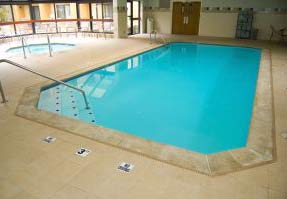The amount of water that is used to fill a swimming pool accounts for a major part of a household’s water consumption. Taking steps to prevent the loss of water will help save energy in the long run. Here are a few steps to ensure that you save water and your pool remains energy efficient.
-
Use a pool cover to reduce the evaporation from the pool and reduce the need for constant filtration of the pool.
-
Ensure that the level of water is half way up to the skimmer opening.
-
Clean the pool regularly, along with the skimmer box and any other collection point.
-
Keep animals outside the pool.
-
Regular servicing and checking pool equipment is a must.
-
Check plumbing around pipe joiners and valves for leaks. If the water level in the pool suddenly drops, a likely cause is a leak.
-
Leaking pools can weaken the foundations of the pool and should be fixed as soon as possible.
-
Leaks can be static in nature, which means it will consistently lose the same amount of water, or may be a pressure based leak, which is consistent whenever the filter is running.
-
Siphon excess water after rains and use it for productive purposes such as watering plants that don’t receive rain water.
-
Harvesting rain water to top up the pool saves on a community’s water resources. This can be done using rain water diverters. These devices collect water from the roof of the house and divert it to the pool. Another alternative is to have an above ground rainwater tank made of lightweight polyethylene or corrugated iron or steel.
-
Use of portable bladders is a space saving way to save and store rainwater. These bladders can be folded away when not in use and are considered to be resistant to punctures.
-
The use of various types of pool covers will help in preserving water. Bubble blankets help to tap solar energy to heat the water and, at the same time, keep the pool free of debris. Thermal blankets help the pool to retain its heat throughout the night. A liquid pool cover is a biodegradable liquid, which slows the amount of heat loss and water evaporation.
...Read more
Close










